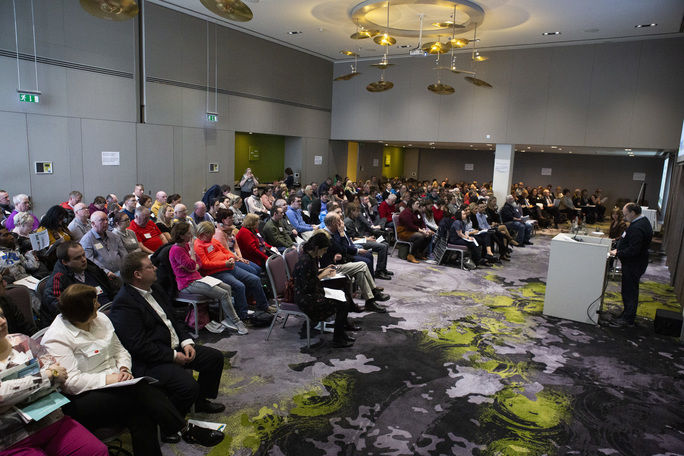Advocacy aims to challenge exclusion and promote inclusion.
We encourage advocacy at all levels in Rehab Group: from one-to-one conversations to taking action at local level to national, headline-grabbing campaigns. Rehab Group’s Five Year Strategic Plan aims to develop a robust and independent advocacy structure within the organisation. We support the people who use our services and the broader disability community to raise issues that matter to them.
Check out some of our campaigning work hereRehab Group Advocacy Team provides support and guidance for staff and families engaged in advocating for those who use Rehab Group services.
This advocacy can take many forms:
Self-advocacy
Group or Peer
Representative advocacy
Local Advocacy Committee
A Regional Advocacy Committee is a group of people who use RehabCare’s services or are students in National Learning Network elected to represent students and those who use RehabCare services at a regional level.
They come together to discuss regional issues, both within the services and outside the organisation. They work with the Regional Advocacy Officer and Managers for the region to provide feedback on concerns, needs, or queries highlighted to the committee from those in local services. Representatives from the National Regional Advocacy Committees address the Group’s Board of Directors on an ongoing basis and communicate matters of importance to them.

Committee members should:
- Be willing to stand up for people’s rights
- Work with managers and staff to ensure that the centre works well together
- Feedback regularly to the people that they represent
- Be good listeners so they can give feedback on any issues they feel are affecting those in their centre
- Liaise with the Regional and National Advocacy Committees
- Take part in local events within the service and the local community
- Support the centre to arrange or co-ordinate events, book guest speakers or help to co-ordinate other occasions

Examples of items raised and worked on at Local Advocacy Committees include:
Improving parking for people attending services
Discussing and arranging ballots for outings and festive celebrations
Requesting quiet spaces/areas within centres
Arranging for external visitors to come to centres from areas such as mental health as part of awareness raising
Arranging pamper days and sports days
Arranging events to fundraise for organisations in the local community
Regional Advocacy Committee
A Regional Advocacy Committee is a group of people who use RehabCare’s services or are students in National Learning Network elected to represent students and those who use RehabCare services at a regional level.
They come together to discuss regional issues, both within the services and outside the organisation. They work with the Regional Advocacy Officer and Managers for the region to provide feedback on concerns, needs, or queries highlighted to the committee from those in local services. Representatives from the National Regional Advocacy Committees address the Group’s Board of Directors on an ongoing basis and communicate matters of importance to them.

There are three regions represented in the Rehab Group.
- The East: Dublin, Louth, Meath, Laois, Offaly, Kilkenny, Carlow, Kildare, Wicklow, Waterford & Wexford
- The Northwest: Mayo, Sligo, Leitrim, Donegal, Galway, Roscommon, Cavan, Monaghan, Longford, Westmeath
- The South: Limerick, Clare, Kerry, Cork, Tipperary
Regional Advocacy Committees are initially elected by the people attending the annual National Advocacy Conference every two years. As people leave, they are replaced. A Regional Advocacy Committee comprises 12 people, six from RehabCare and six from National Learning Network. Ideally, there will be two reserves that can be called on as people leave the committee.
National Advocacy Conference

The annual National Advocacy Conference takes place every year in Dublin and is attended by up to 200 delegates. This comprises staff, people who use Rehab Care services, and National Learning Network students who travel to the conference from across Ireland.
High-profile keynote speakers include Senators Lynn Ruane and Joan Freeman; Leigh Gath, the Confidential Recipient for Vulnerable People (HSE); Mei Lin Yap, disability advocate and Trinity College Dublin graduate. During the proceedings, new Regional Advocacy Committee members are elected. The Regional Advocacy Committees also report on their work, and there is an Open Forum where delegates can discuss topics of importance to them.